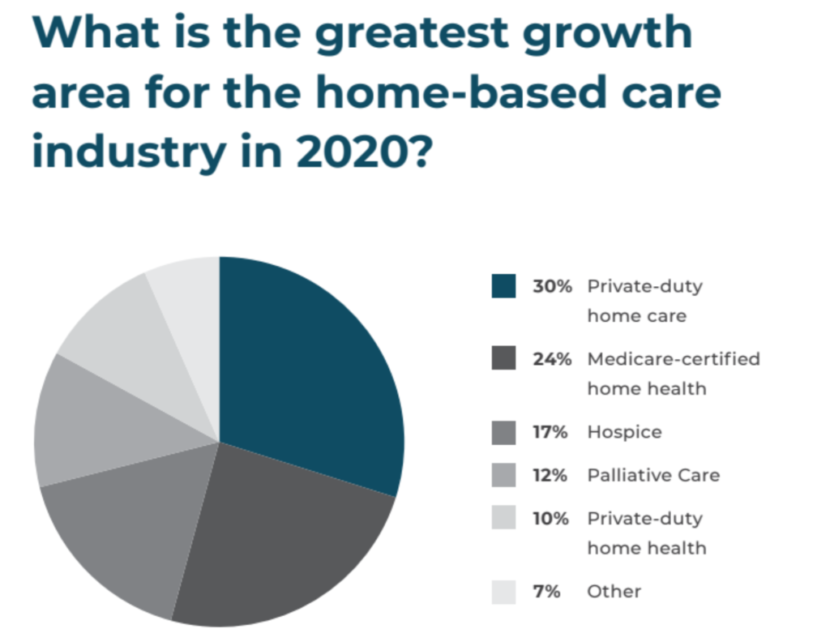By Kevin Murphy, executive vice president of complex care for Clover Health
House calls aren’t just a relic from the 1930s when the local doctor would show up by the bedside to address whatever ailments befell the patient. Today, with close to 2 million seniors completely or mostly homebound in the United States, there has been a 21st-century resurgence in the need for doctors making house calls.
As a 10-year veteran of the in-home health care industry, I’m excited by the progress from private companies, nonprofit groups and the federal government, which is actively testing and supporting new approaches to delivering home-based care.
For instance, the Center for Medicare & Medicaid Innovation (CMMI), an important component of the Affordable Care Act, supports new approaches to improve health outcomes and lower system-level costs. As part of CMMI, there are two programs in particular that are changing both providers’ and regulators’ perspectives on senior health management: Independence at Home and Primary Care First. Both programs aim to test the effectiveness of coordinated primary care, including in-home primary care, for the most vulnerable Medicare beneficiaries.
At Clover Health, we’re developing our own unique, personalized and proactive approach to in-home care. Our model uses proprietary technology, including data analytics and machine learning, to constantly evaluate which members are at highest risk of adverse health outcomes and create interventions to reduce those risks.
One of our data sources is pharmacogenetic testing. Members in Clover’s home-based primary care program take an average of 14 medications a day. By testing drug-gene and drug-on-drug interactions, our clinical team gains new insights to inform drug dosage changes, new prescriptions and medication deprescribing decisions. We’re also installing a ”Clover Button” into the homes of certain high-risk members to provide easy access to our care team. When pressed, the device directly patches through to one of our medical practices, instead of a third-party call center. Clover Button offers members peace of mind that they’ll have direct access to their care team for any questions they might have.
Beyond clinical support, house calls help providers best identify and address patients’ holistic needs for care. These needs span spiritual, social, medical and psychological domains. Recently, our Clover team put that ethos into action, by helping a patient with multiple chronic conditions — including an auto-immune disease that makes it very hard to breathe — clean out her cluttered home. When the care team first visited the patient, her room was so messy that her bed was completely hidden under piles of trash and debris. With the member’s consent, the Clover team got to work — tossing seven bags of trash, making her bed with clean sheets and pillows, and opening a previously obscured window to allow fresh air to enter the room. With this on-the-ground help, the patient was happy to be able to sleep in her own bed again and live in an overall safer, healthier environment.
This anecdote demonstrates that providing in-depth, patient-centered care is a serious investment. Yet doing so can significantly lower health-care costs for high-risk adults when compared to typical care in a doctor’s office. While it may be expensive to have providers travel to members’ homes, it alleviates suffering, improves patient satisfaction, and reduces high-dollar costs in the long-run. Recent research confirms the benefits of in-home care in preventing hospital readmissions, reducing the likelihood by 25% in some cases.
Popular Reports
Advertisement
At Clover, home-based primary care has reduced medical costs by more than $600 per patient per month for those enrolled in the program. These savings are realized through improved health outcomes that lower the need for inpatient, emergency room and skilled nursing care. When Clover started its home-based primary care program, enrolled patients experienced an average of more than 1,200 hospital admissions per 1,000 patients per year. We’ve since brought that number down to 600 hospital admissions per 1,000 — a 50% reduction.
As the senior population continues to grow, it’s crucial that the government and private sector continue to collaborate on research and model innovations to better care for an aging America. Meanwhile, we at Clover will continue to work with providers and health plan members to make in-home care available to those who need it most.
Editor’s note: This column highlighting the value of in-home primary care was written by a Clover Health executive and submitted to Home Health Care News for exclusive publication. Founded in 2013, Clover Health is a Medicare Advantage insurer that has raised more than $900 million since launching. Google parent company Alphabet Inc. (Nasdaq: GOOGL) is among Clover Health’s backers.
